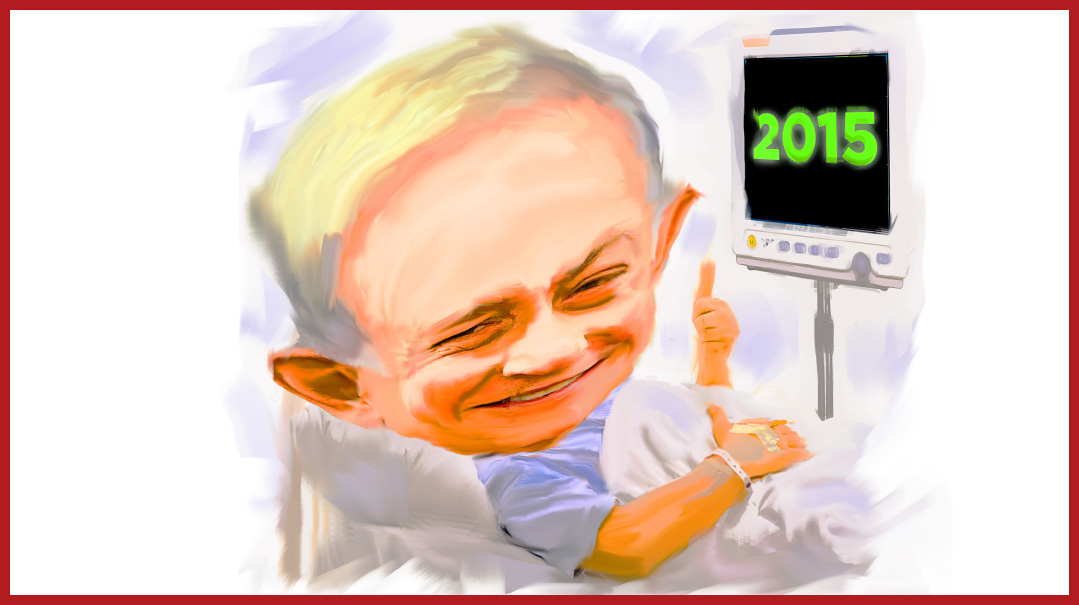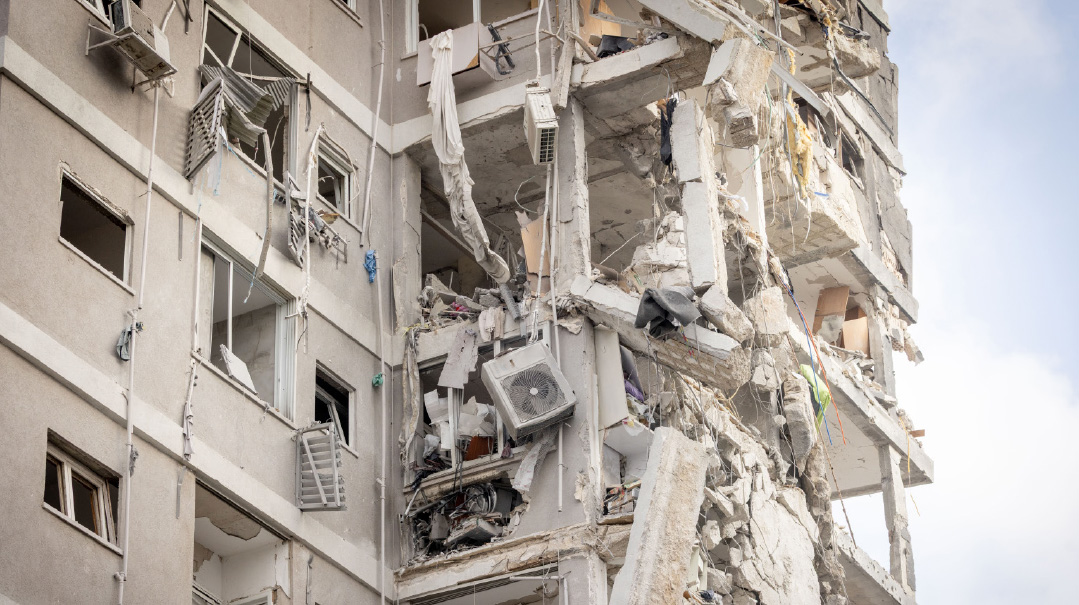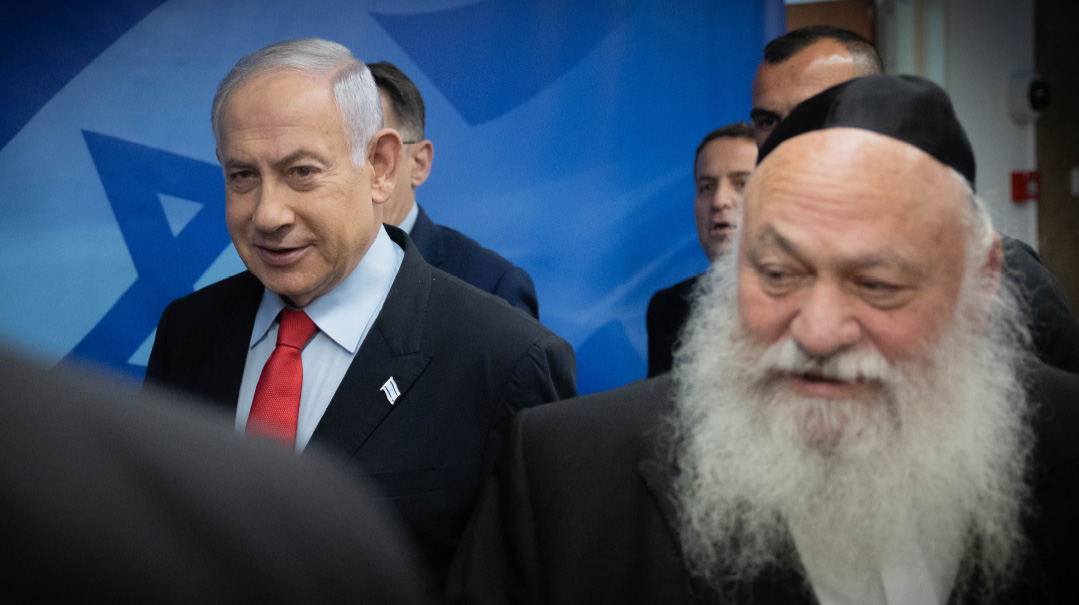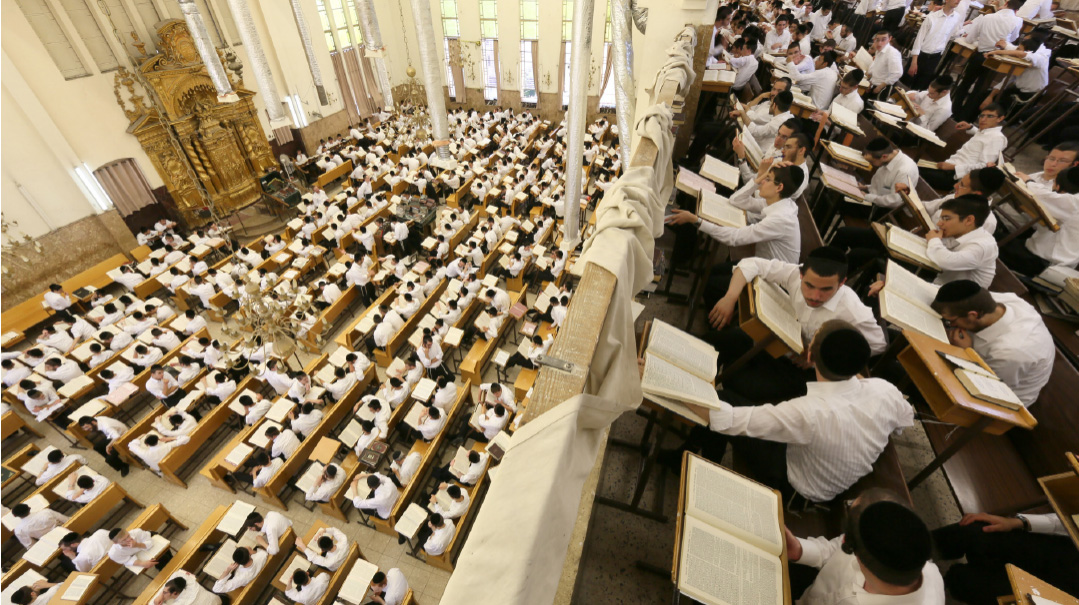2015 REDUX

As fifth elections loom, Bibi fears a 2015 reprise

1.
The phrase “call me after the holidays” is often used in the business world to push off tough decisions, and it pretty much sums up the season’s Israeli political map as well. A week and a half before elections is generally when the campaign goes into overdrive — in the media, on the street, and on social media.
But despite the potentially dramatic impact of the 2022 election on Israel’s political reality, the date — right after the chagim — has made it one of the drowsiest in Israel’s history. The Israeli public was busy with the Yamim Noraim and holiday prep, and the only current affairs of major interest were related to terror attacks and security lockdowns.
It’s often said that the opposition never wins an election, just that sometimes the government loses. A drowsy election campaign, going by that dictum, should favor the incumbent government. The prime minister, who controls the agenda by virtue of his post, becomes a steady hand on the wheel and as long as he doesn’t make any serious gaffes, his path to another term is wide open.
But none of the usual paradigms apply in this campaign. As a caretaker prime minister after a year of a wobbly Bennet-led government that daily tottered on the brink of disintegration, Yair Lapid is seen as a placeholder at best. For all his gravitas, his state visits, his speech in the UN and overtures for “peace,” Lapid has failed to cement his image as prime minister in the public mind.
It’s Netanyahu, from his position as opposition leader, who continues to dominate prime ministerial preference polls by dozens of points. Lapid isn’t even breathing down his neck, and his inactivity is only cementing the public perception that he lacks the qualities necessary to steer the ship of state into port.
2.
Netanyahu hopes to build on this popular feeling and drive right-wing voters who stayed home last time, whether from indifference or despair, to the polls. Netanyahu considers the very vision of Lapid as prime minister as the biggest driver of right-wing turnout. This is why both Lapid and Netanyahu have one goal in common: to eliminate Benny Gantz as a viable third option and leave the battlefield to them.
Yet until the votes are actually counted, Netanyahu takes nothing for granted. In order to understand his wary mindset — poised on the edge between victory and defeat, we can go back to the 2015 election, the last time Netanyahu won big in defiance of the polls. After that election, he served out a full term of four years, which is a regular presidential term in America, but an eternity in Israeli politics.
Since then, in four consecutive elections, Netanyahu has scored three draws and one loss. The fifth election is perhaps his last chance to prove that despite the past two years, he’s still the big winner in Israeli politics.
Perhaps the following anecdote from 2015 — an election he won as an incumbent — can help shed light on his mindset seven years later. A week after Purim, on March 17, 2015, the day of the elections for the 20th Knesset, Channel 2’s veteran political commentator Amnon Abramovitch was surprised to receive a phone call from Bibi, who broke into a lengthy rant about how the Likud was going to lose the ability to form a government after the elections. Bibi accused the left of media interference, of using the polls to sway election results.
At the time, there was a get-out-the-vote media campaign called V-15 (“Victory 2015”) sponsored by a left-wing umbrella organization, an effort Netanyahu alleged was more sinister than a push for higher voter turnout. He was right. The charter of V-15 had the express purpose of flipping the Netanyahu government. He claimed the left was using sophisticated artificial intelligence and Internet stalking techniques to identify groups that were on the fence to get them to vote.
When Abramovitch exclaimed, “What are you talking about? This evening you’ll be reelected prime minister,” Bibi shot back that the polls are actually a manipulative way of lulling the right-wing voters into complacency while getting out the votes on the left.
Netanyahu continued by comparing V-15 with inimical elements in the Obama administration, whose “change movement’” tactics identified both undecided voters and those intending to stay home through sophisticated social media tracking and then bombarded them with messages on social media, practically shoving the ballots into their hands. Long before the intervention of Russian bots in elections in the West became widely known, Bibi, as usual, was the first to crack the system.
To this day, Abramovitch can’t decide whether Netanyahu’s gloom that afternoon was real or feigned, Purim or Kippurim. At the time, though, he believed Netanyahu was speaking from the depths of his convictions, even as he went on to rout the opposition.
3.
IN the upcoming 2022 election, like that of 2015, Netanyahu again is the only candidate capable of forming a stable government. According to the polls, neither Lapid nor Gantz has realistic options for forming a government. It’s not in the cards, as they say.
In the previous four campaigns, the right showed up at the ballot box fragmented and diffused. Some right-wing parties teetered on the brink of the electoral threshold. Others hadn’t signed the surplus vote-sharing agreements that ensure no right-wing votes go to waste.
This time, though, it’s the right that’s united and facing a fragmented left. Almost every poll puts Netanyahu a hairsbreadth from the 61st seat. And this doesn’t include a scenario in which a left-wing party (Meretz, Hadash-Ta’al, or Labor) fails to cross the threshold and dramatically alters the balance of power.
And for all this, in 2022 as in 2015, Netanyahu isn’t counting his chickens yet. He’s identified a campaign by left-wing NGOs with international funding to raise morale in the Arab street. He’s suspicious of the polls published in the Israeli media, seeing the latter not as an objective reporting voice but as a powerful political force as well. If he was tense in 2015 as the incumbent prime minister, now, after four failures, he remains vigilant around the clock.
This time, Netanyahu doesn’t have the luxury of a draw that would take the country to another election from the post of caretaker prime minister. If no decisive result is reached, Israel will be led into a sixth election under a caretaker government led by Yair Lapid.
The polls seem promising for Netanyahu — at least compared to the last election — but just as in 2015, Netanyahu smells defeat. He’s still wary of the polls lulling the right-wingers to stay home and boosting the turnout of the left. Even as he projects confidence to his base as part of the campaign strategy, inwardly he’s driven by the desperation of someone who senses that nothing is in the bag. And that feeling will remain with him, spurring him onward, until the last vote has been cast.
(Originally featured in Mishpacha, Issue 932)
Oops! We could not locate your form.







